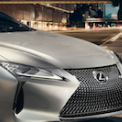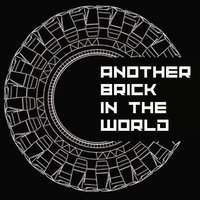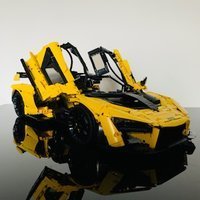-
Content Count
3026 -
Joined
-
Last visited
About Didumos69

-
Rank
Just Perfectionist Please!
- Birthday 03/30/1969
Spam Prevention
-
What is favorite LEGO theme? (we need this info to prevent spam)
Technic
Profile Information
-
Gender
Male
-
Location
The Netherlands
-
Interests
Family and cycling.
Extra
-
Country
The Netherlands
-
Special Tags 1
https://www.eurobricks.com/forum/public/style_images/tags/technicgear2.png
-
Special Tags 2
https://www.eurobricks.com/forum/public/style_images/tags/technic_silver.png
-
.thumb.png.116032e930e483fb4ebbfdc62183bd34.png)
[WIP] Red Wolf - 4WD RC Buggy /w Buwizz
Didumos69 replied to Didumos69's topic in LEGO Technic, Mindstorms, Model Team and Scale Modeling
Hey there, good to see you back too! I hope I find the time to make instructions, but that will certainly take a while. I had to make a few changes since the last time I posted. I'm using this metal bearing block now for the gears driving the diffs: https://metal-technic-parts.com/products/technic-aluminium-metal-beam-bearing-block Here's a short impression: -
barberminged started following Didumos69
-
.thumb.png.116032e930e483fb4ebbfdc62183bd34.png)
[WIP] Red Wolf - 4WD RC Buggy /w Buwizz
Didumos69 replied to Didumos69's topic in LEGO Technic, Mindstorms, Model Team and Scale Modeling
I know I'm not much of a team player and should have made that perhaps even more clear than I did. I'm sorry for that. I'll send you a PM. If there's anyone else I need to mea culpa to, let me know. I'm in a good mood now. -
Another Brick in the World started following Didumos69
-
longwang516888 started following Didumos69
-
.thumb.png.116032e930e483fb4ebbfdc62183bd34.png)
[WIP] Red Wolf - 4WD RC Buggy /w Buwizz
Didumos69 replied to Didumos69's topic in LEGO Technic, Mindstorms, Model Team and Scale Modeling
No, all went well. It may not look like it, but it's very tightly packed inside. So adding 2 more motors will require serious rework. Nice model! I did not have any wheel drop off while driving. It did happen when I hit something hard. On such occasions it even happened that the tires came off the rims. If it would happen I personally have no problem driving set screws inside the pins of the hub. But the downside of that is that the wheels don't come off at all, while them coming off on serious impact is actually a good thing as it absorbs part of the impact energy. I have experience with these set screws. They seems to be the perfect solution. -
.thumb.png.116032e930e483fb4ebbfdc62183bd34.png)
[WIP] Red Wolf - 4WD RC Buggy /w Buwizz
Didumos69 replied to Didumos69's topic in LEGO Technic, Mindstorms, Model Team and Scale Modeling
Thanks! Another test outside today: Results are pleasing: -
.thumb.png.116032e930e483fb4ebbfdc62183bd34.png)
[WIP] Red Wolf - 4WD RC Buggy /w Buwizz
Didumos69 replied to Didumos69's topic in LEGO Technic, Mindstorms, Model Team and Scale Modeling
Thanks! I've built the removable body. Not all parts have arrived yet, so the colors are not final yet, but here are some early videos of some indoor playing. Sorry for my bad driving skills -
kingiswide started following Didumos69
-
Didumos69 started following [WIP] Red Wolf - 4WD RC Buggy /w Buwizz
-
.thumb.png.116032e930e483fb4ebbfdc62183bd34.png)
[WIP] Red Wolf - 4WD RC Buggy /w Buwizz
Didumos69 replied to Didumos69's topic in LEGO Technic, Mindstorms, Model Team and Scale Modeling
Thanks for the kind comments everyone! Yes I only use the small springs now. They're cheaper and take up less space. The travel is still such that the bottom can almost touch the ground when the springs are fully compressed. I reserved space for a third spring for each wheel so I don't need to do any concessions to suspension travel. I expect such a third 3 spring to be needed in the rear once I attach the body. Yes I use 2 Buwizz motors on 1 axle. I did not experience that. The wheels did come off on occasions, but only when there was impact. I've tested the setup a lot and sofar nothing broke. It even happened that I went from full throttle forward to full throttle backward. No clicking gears, no broken parts. I'm using the high speed/less torque outputs of the motors, that will probably also make a difference. Of course, I want a speedy model that is not light-weight, so you have to know what you're doing, also as a driver. The RWD setup with 4 motors on a single axle showed me that as long as the motors can deliver their speed, all works fine. But when doing many sharp turns, which cause the speed of the rear wheels to drop significantly, problems arose. Less RPM means more torque and eventually this caused the axle to overheat (not just break, but overheat), exactly at the point where it enters the 5x7-frame with the diff inside. Also the frame overheated. Eventually the overheating made the axle melt and then it simply winds up until it breaks. Now that I have a 4WD setup nothing like that happened and I can make whatever turns I like. I do keep in mind though that the motors need to be able to deliver their speed. So I'm not gonna ride it up a steep hill for 5 minutes straight. Btw, while experimenting with the RWD version, I also ran into the issue that the output axles of the diff worked themselves out of the bevel gears inside the diff and started skipping, gradually drilling a whole in the bevel gears. The problem was that the drive shafts had too much play in them. This I could resolve by adding a support halfway the drive shaft, which locks up the CV-joint exiting the diff. See image. In this image you also see how the wishbones are form-locked with thin liftarms spanning their width. And you can see the LBG #1 connectors that prevent the steering links from detaching. When they do detach, you only need to temporarily remove the connector to put them back. -
.thumb.png.116032e930e483fb4ebbfdc62183bd34.png)
[WIP] Red Wolf - 4WD RC Buggy /w Buwizz
Didumos69 posted a topic in LEGO Technic, Mindstorms, Model Team and Scale Modeling
Hi, It's been a while, but this winter I got my hands on the Audi RS Q e-tron set with the new wheel hubs for the strong (RC-capable) CV-joints. A year ago I got 2 Buwizz 3 units and a couple of Buwizz motors (their buggy motor remake) and with the hubs and diffs from the Audi I could finally continue a concept that I have working on every now and then over the past few winters. The idea was to create an off-roader with ruggedness and capabilities comparable to my Greyhound 4WD RC Buggy and Make a modular build with an easily removable body, just like with real RC cars Make the Buwizzes easily removable, so you can use them for multiple models Make it easy to reconnect the steering ball joints if impact caused them to detach The wheelbase is 3 studs shorter and the trackwidth 2 studs narrower compared to the Greyhound. The roof top is also 2 studs lower. All in all I strived for a little bit more of a race look. One of the ideas that I started with (about 2 years back), was a setup with 9L steering links that are positioned with a small angle, such that they are actually a little too short (about 0.8%), which gives them a nicely tight fit; when you use them at both the front and rear side of the steering setup that is. With this setup any rotation in one wheel hub translates to immediate rotation of the other wheel hub, without any slack. I also wanted to use 4 Buwizz motors to make the whole thing capable. At a certain stage I had a setup with the old wheel hubs and the new RC-capable CV joints, but I could only make that work for a RWD model, not for 4WD. 4 Buwizz motors on a single axle did not turn out to be a good idea. With melting axles and frames as a result. With the new wheel hubs of the Audi RS Q e-tron I could revert to 4WD and I could finally make the whole thing work. Here's a video of the first successful test-drive with the chassis only. -
technicboi started following Didumos69
-
killerfrost started following Didumos69
-
Technic tango started following Didumos69
-
.thumb.png.116032e930e483fb4ebbfdc62183bd34.png)
[HELP] Generic Building Help Topic
Didumos69 replied to Jim's topic in LEGO Technic, Mindstorms, Model Team and Scale Modeling
I fear your model is either too heavy or there is some friction going on somewhere between the motors and the wheels. I used a 90 degree thin 12t gear vs thin 12t gear mesh in my recent 42129 b model without problems, also with a 1:1 drive ratio (the bracing had to be perfect to make that work). But that was with PU parts. -
.thumb.png.116032e930e483fb4ebbfdc62183bd34.png)
[HELP] Generic Building Help Topic
Didumos69 replied to Jim's topic in LEGO Technic, Mindstorms, Model Team and Scale Modeling
The way the 5L beams that brace the male part of the CV-joint could be mounted to the 5x7-frame better. Right now this relies on the pins with pinholes, which may be pulled out a little. These pins with pinholes are friction locked, not form locked. It would be better if you can somehow use vertically placed 3L pin with pinholes (the same piece you use to connect the 5L beams and hold the drive axle) and mount them to the 5x7-frame such that the structure relies on pulling pins sideways instead of lengthwise. The issue you're running into is not new. Many people have had problems with combining CV-joints with RC, even with plain PF parts. I don't know your build, but as a rule of thumb I would say: If your model is about speed, I would keep the old CV-joints, lower torque and increase RPM by gearing up the output of the motors. If your model is about trial or crawling, I would use the new CV-joints and the new portal hubs. And also in this case, you probably want to increase RPM by gearing up the output of the motors. That will reduce torque in your drivetrain and somewhat compensate for the gear reduction in the portal hubs. For increased RPM and lower torque in your drivetrain to be an option, it's important to have a drivetrain with low friction. Maybe those knob wheels are a source of friction, I don't know. You could try with different gears and check what happens. -
.thumb.png.116032e930e483fb4ebbfdc62183bd34.png)
[HELP] Generic Building Help Topic
Didumos69 replied to Jim's topic in LEGO Technic, Mindstorms, Model Team and Scale Modeling
I believe that was in a post by @PorkyMonster. These days you could also use something like: Btw, for the new CV-joints it might be useful to know that you can work with parts around the CV-joint on a diagonal grid: -
.thumb.png.116032e930e483fb4ebbfdc62183bd34.png)
Impossible LEGO
Didumos69 replied to Boxerlego's topic in LEGO Technic, Mindstorms, Model Team and Scale Modeling
You're quite right -
.thumb.png.116032e930e483fb4ebbfdc62183bd34.png)
Impossible LEGO
Didumos69 replied to Boxerlego's topic in LEGO Technic, Mindstorms, Model Team and Scale Modeling
Alright, let's fix that. -
.thumb.png.116032e930e483fb4ebbfdc62183bd34.png)
Impossible LEGO
Didumos69 replied to Boxerlego's topic in LEGO Technic, Mindstorms, Model Team and Scale Modeling
If you could build this Penrose triangle: you can build a strong triangular wall: -
.thumb.png.116032e930e483fb4ebbfdc62183bd34.png)
[MOC] Hot Trot - RC Trial Pickup w/ Diagonal AWD (42129 B model)
Didumos69 replied to Didumos69's topic in LEGO Technic, Mindstorms, Model Team and Scale Modeling
Thanks! I had a lot of fun building it! -
.thumb.png.116032e930e483fb4ebbfdc62183bd34.png)
[MOC] Rocky 42099 B model
Didumos69 replied to Didumos69's topic in LEGO Technic, Mindstorms, Model Team and Scale Modeling
Cool! That 4-wheel steering is great addition! Thanks for sharing!





